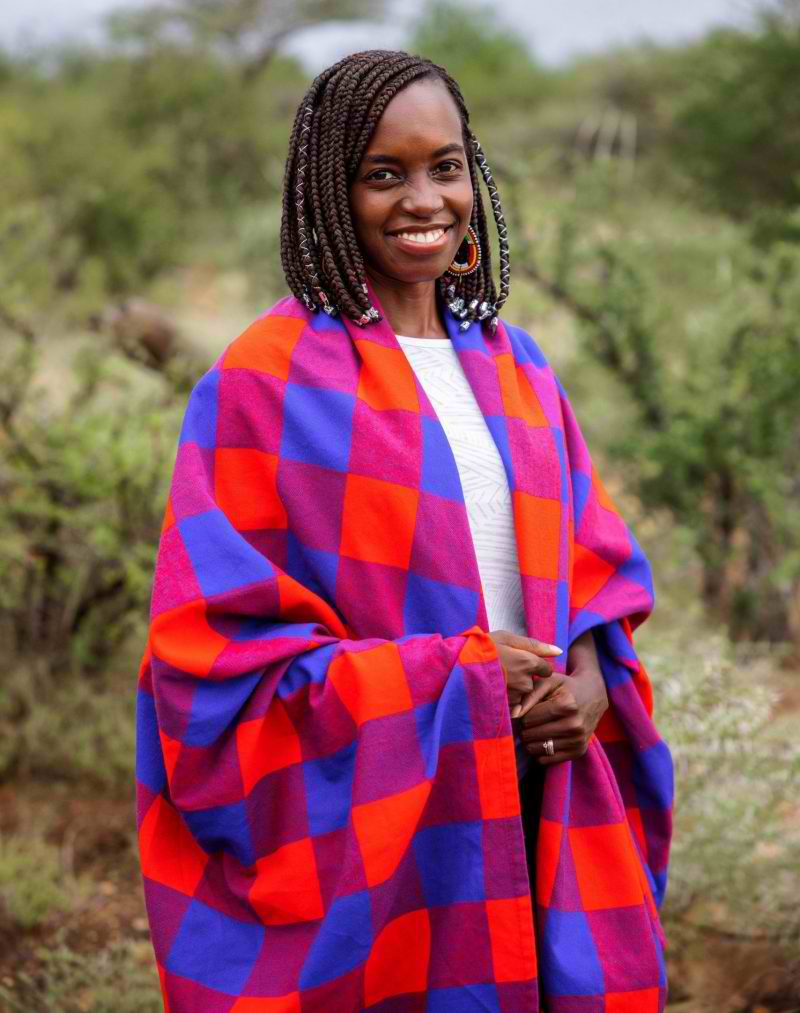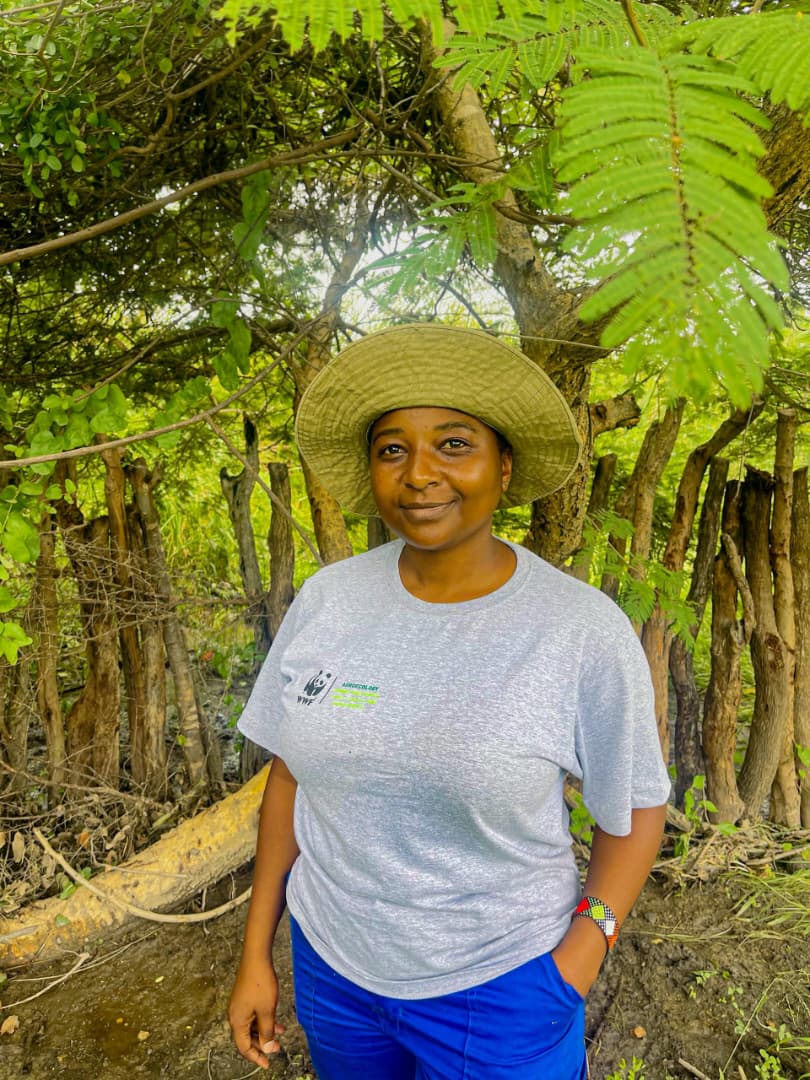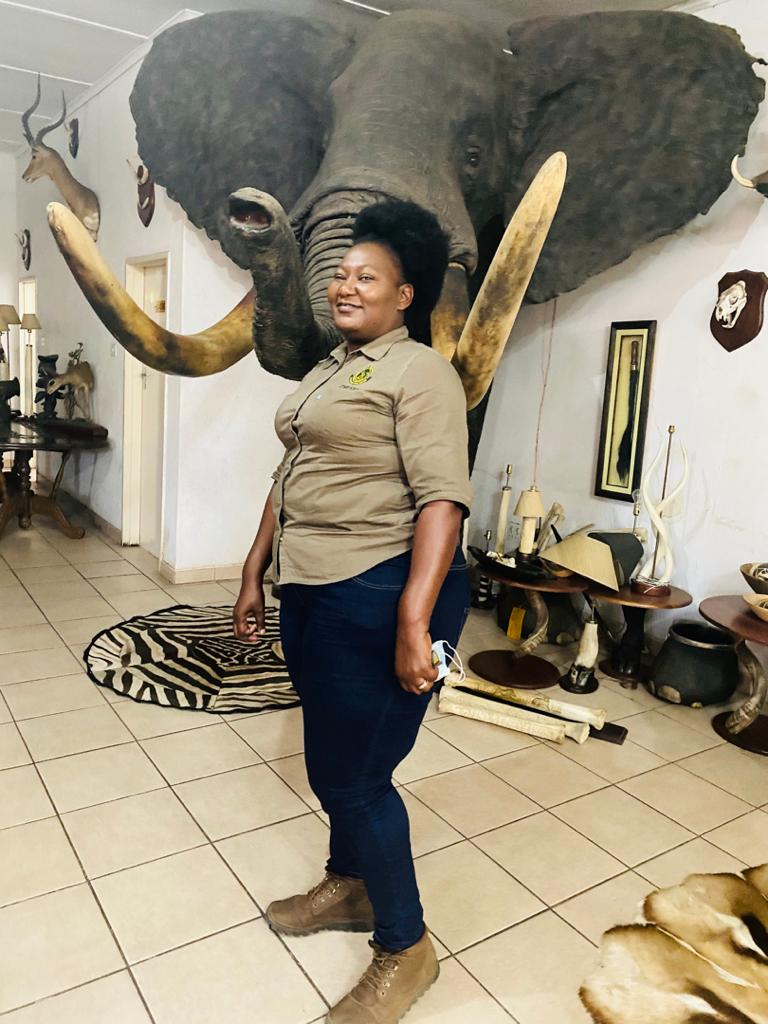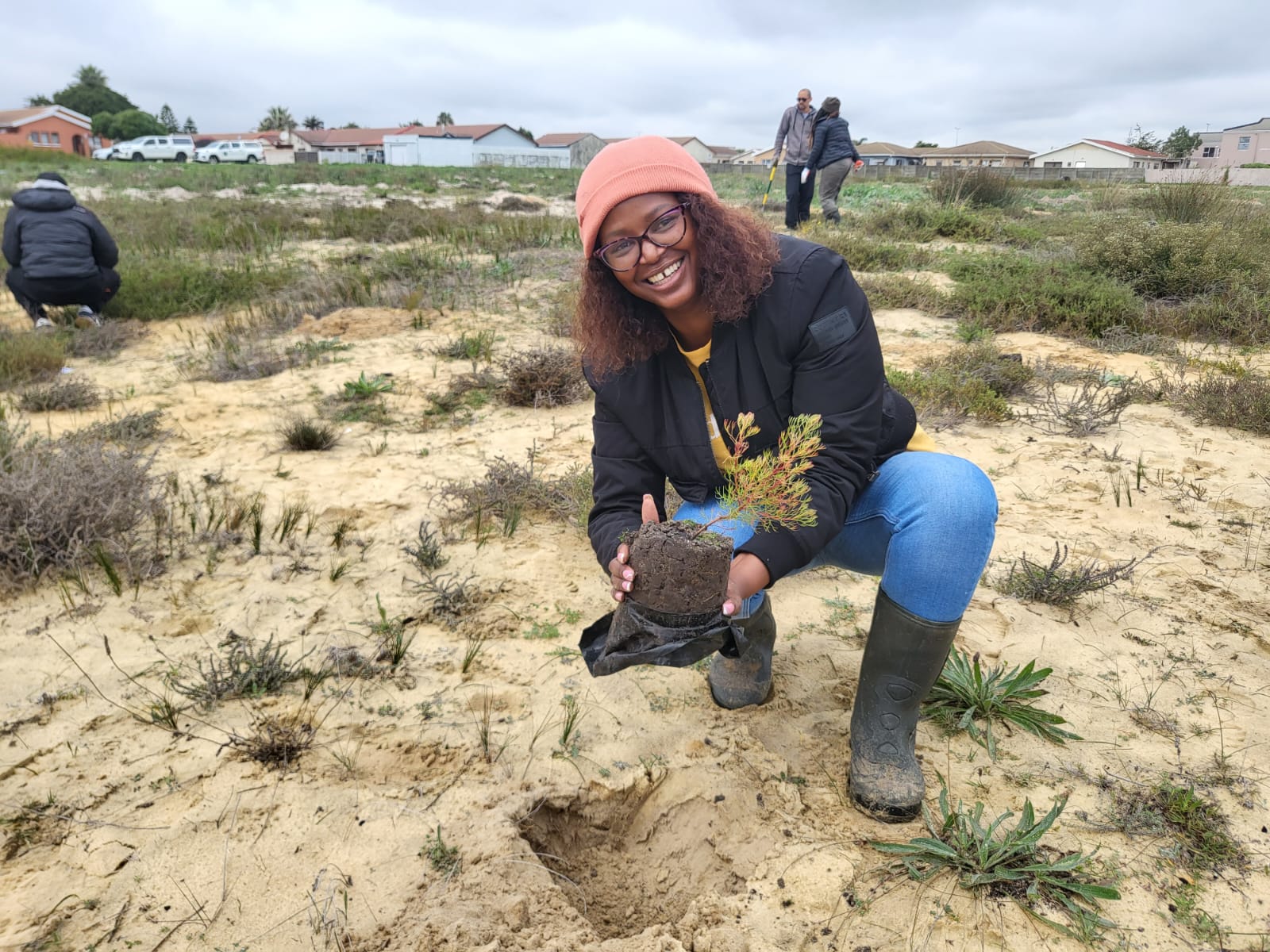Lions are incredibly important and are a symbol of Kenya in many ways. But it has to be more. It has to be about us. Our cultures, our innovation, our land and how that intersects with wildlife.
Deputy Director of Ewaso Lions, Resson Kantai Duff is a strong advocate of the importance of diversity in conservation science. Her work revolves around deconstructing the prevalent narrative of conservation which has put humans against natural resources. She believes there is an urgent need to redefine the conservation narrative in Africa, which came with a lot of colonial baggage. Through her work, Resson hopes to give Kenyans a sense of ownership over their wildlife, culture, and land.
She shares her story with Damaris Agweyu.

Resson, do you consider yourself an activist?
I struggle a lot with this word because of its connotations. The first thing it brings to mind is someone yelling at other people, telling them to do better. I struggle with the fact that environmental activism, especially, connotes picketers who are against “development.”
What I love is building relationships for, not against, things. But this is not always easy, especially for urbanites like me who are so used to exclusionary spaces and creating villains at every turn. That's a game I would love to change.
Lion conservation. That's what you are primarily known for.
To be honest I talk about “lion” conservation less and less. Because it makes it seem like it’s about the single species, whereas conservation is so much more than a focus on a single species, or even the protectionist agenda it implies. Lions are incredibly important and are a symbol of Kenya in many ways. But it has to be more. It has to be about us. Our cultures, our innovation, our land, and how that intersects with wildlife.
I would love it if all Kenyans could start seeing themselves as part of the conservation story.
You don't feel that they do?
No.
Why not?
In the way it's currently presented, the conservation narrative is too far removed from the regular Kenyan. As it stands today, the only way you can be part of this story is to be a hero of some sort. But we don't need heroes or saviours. The hero story has done enough damage. An intrepid explorer coming from afar to “save” Africa’s endangered wildlife. We don’t need any more of those even if they are black and Kenyan.
That narrative came with a lot of baggage – colonial baggage. We are beginning to recognise this, but the problem is that the men and women who believe themselves to be against the old narrative are window dressing it. There are urbanites who have decided to be champions for wildlife, but they seriously need to revise their approach.
I have started figuring out ways to push, to the fore, conservationists who don’t fit the profile as it were. One of my proudest moments was taking our Mama Simba ladies to the US. These women demanded to be part of the conservation of their landscape, formed their own programme, and are doing unbelievable work to restore their landscape and be the voice of wildlife. Every year, they hear how we go abroad to tell their stories. They decided that they wanted to tell their stories themselves. It was a beautiful experience to step out of the way and let them do that.
How were their stories received?
Exceptionally well. But the best thing about it was how the experience changed these women. They hardly ever come to Nairobi, so the city experience is entirely foreign to them. At some point early in the trip, as they gazed up at tall buildings, they told me: Ni kama mzungu ako karibu na mungu (It's like the white person is next to God).
I was dumbfounded. I asked one of them, Munteli, if she feels she is "next to God". I directed this question to her because she is the coordinator of a pioneering programme, and is the first traditional Samburu woman to drive a car, because of her sheer capacity to push the boundaries. “Did that make her ‘closer to God’ than her fellow women?” She said no. I couldn’t work out what else to say to convince her that there was no difference between them and us, but graciously, the rest of the trip did the work for me.
In the end, they learnt for themselves that every culture has wealth, innovation as well as its fair share of skeletons. There is no better way to convince them that no one can do conservation in their landscape better than they can.
What contributed to shaping you into the woman you are today?
I am a child of privilege; it is privilege not in terms of wealth — my parents always chose principle above power and positions — but in terms of how they invested in us as their children. It's also a privilege that I have two educated parents, both formally and informally. My father is a child of a cattle trader who became a Christian and sedentarised his family. This led to his education; he went to Alliance High School, Makerere University, and Oxford. He says he was the first Maasai to go to Oxford.
Does he just say it, or is it true?
I don't know if there's a record capturing this, but I believe him.
My mother is Ugandan, and she also comes from great privilege in the sense that Uganda was a protectorate, and being a Mganda, she was part of a long formally educated class of individuals. The plan for her was to go to Makerere University, get married and live the life that had been planned out for her. She fiercely declined. At 19 years of age, she got on a train and came to study at what is now The University of Nairobi. That is where she met my father. She has spent 50 years in Kenya and built her life and career around the things she wanted to do as opposed to what was expected of her.
Both my parents made some very clear decisions about what they wanted for their children. They were very aware of the patriarchy in society. This led them to put my sister and I in a great girls’ school. My mother worked inordinately hard to pay our fees and give us the things she felt were important. She chose to put us in multicultural, multiracial schools. It was only much later that I found out why: She didn't want us to grow up thinking that anyone was innately better than us.
In many ways, that has led to the passion for the things I speak about. If you have always been told that someone is better than you, maybe because of the colour of their skin, or their gender, it becomes hardwired. You continue to live under the crushing oppression of that belief. I am grateful to be sure these “isms’ – racism, sexism, classism – are wrong, and that is my mother's legacy.
I’ve been given marvellous opportunities, but I’ve also made many mistakes along the way, and I am figuring out ways to speak about it with empathy. The trauma I have seen in the conservation world is what prompted me to co-write the commentary on Mongabay.
Can you tell me about these mistakes?
Yes. I ran an education program for a time. I recognise now that how we ran it was so demeaning and oppressive to the scholarship students. We extracted their stories and peddled them for donations. “This one is the sixth born child of the third wife of x poor pastoralist family.” I created a world where only a typical western family would be considered normal. We used the toughest moments of a child’s life to get them scholarships as if their own humanity was not enough. It was high-class poverty porn.
This happens everywhere, but this was me doing it and training others to do it. Suck out the story and sell it. The child who gets a scholarship must be eternally grateful to you and the person “saving” them. We created internalised oppression, false gratitude, and dependence.
These were serious mistakes, and I'm still trying to work them out of my system. I was also at a stage in my life where, instead of meeting people where they were, it was about fixing people. If you didn't speak or write the report in a certain way, you'd be dismissed. This was all communicated in the code of the need for “international experience". It’s a code created to dismiss and exclude, and I was part of that.
Over the last few years, I have been learning to forgive myself. To meet people where they are rather than judging them. As a result, I find life a lot fuller, and more meaningful, and I also try to get as many people out of that non-inclusive world as possible.
In retrospect, would you say you did the best you could with the information you had?
Yes. It is what is making it easier to forgive myself, and correct myself. It’s the knowledge that as I grow, what I think is correct now might be debunked in three months with a more empathetic way of thinking. I’m ready for that now.
It takes courage for one to call themselves out on their mistakes.
I have had good examples to emulate. I know people who refused to take up spaces that would have led to better money and opportunities but compromised their integrity.
Still on courage, in an interview with Pat Mitchell, you said, "A world without lions is a world without courage". Can you unpack that statement?
Lions represent so much about courage. Most people don’t consider why. But if you stop to think about it, lions are not that big, but a lion can take on a giraffe. Three lions can surround a young elephant and take it down – that is tremendous courage. And living alongside lions takes courage. Because much of the world is now so removed from nature, we don't realise that 70% of our wildlife lives outside parks. That means there are people who live alongside these lions. When we stop allowing ourselves to believe that that co-existence is possible, then that is the removal of not just lions but our ability to come together to do the work, and, in that, we will have lost our courage.
Thinking about lions and the people who live alongside them gives me the courage to speak up a little more. I mean, how hard is my life?
When I get flustered, I remember Jeneria Lekilelei, our Director of Community Conservation. I looked at him one day, enjoying the moment as we worked together to organize an event. He was so calm. I asked him why he wasn't stressed in the way that I was. He said, "The people I meet every day could kill me because I am telling them not to kill the lion that attacked their livestock. But these people that we are going to meet, are they going to kill us?” The answer was no. Obviously. And at that moment, it hit home. How hard is my job? I don't face life and death situations. So if the courage I need is just to speak about the things that need to change or the mistakes I have made, I should, surely, be taking that courage.
***
This interview is part of a series profiling the stories of the 2021 WE Africa leadership programme fellows, African women in the environmental conservation sector who are showing up with a strong back, soft front, and wild heart.





